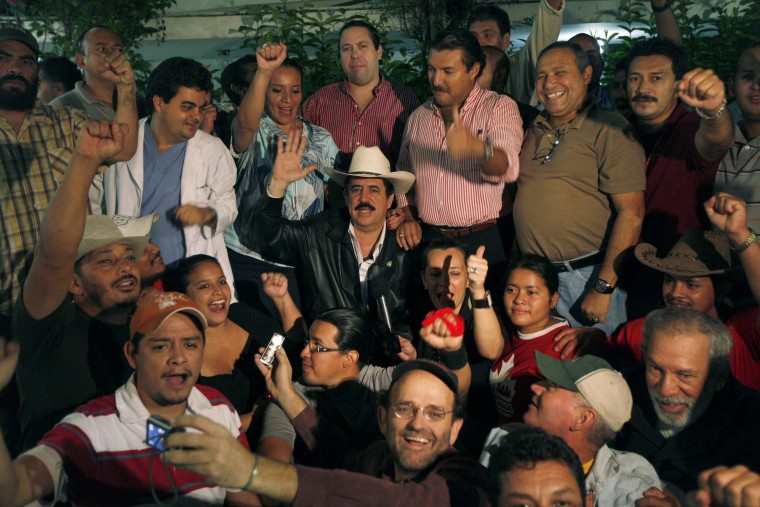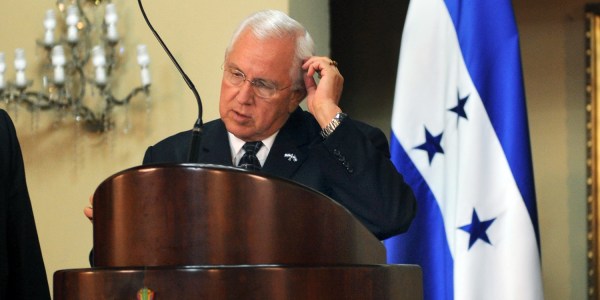Deposed President Manuel Zelaya and his opponents have agreed to a U.S.-brokered deal that he believes will return him to power four months after a coup shook faith in Latin America's young democracies.
The power-sharing agreement reached late Thursday calls for Congress to decide whether to reinstate the leftist Zelaya. While the legislature backed his June 28 ouster, congressional leaders have since said they won't stand in the way of an agreement that ends Honduras' diplomatic isolation and legitimizes presidential elections planned for Nov. 29.
Assistant U.S. Secretary of State Thomas Shannon said Friday that the two sides finally made concessions after realizing the international community wouldn't recognize the elections or restore aid without a compromise.
"There was no more space for them to dither," he said.
Shannon cautioned that "there are a variety of moving parts to this agreement" and said he would stay in Honduras while the two sides negotiate the details.
Under the plan, a government of national unity would take office to oversee the elections and the transition to the next president, who will be inaugurated in January. Neither Zelaya nor interim President Roberto Micheletti is running; the front-runner is lawmaker Porfirio Lobo of the National Party to which both Zelaya and Micheletti belong.
Zelaya: 'Not going anywhere'
"We are willing to be cooperative in Congress with the agreement of the negotiators," Lobo said Friday. "The best decision for Honduras will be taken."
The plan does not include a deadline for congress to act, but Zelaya told The Associated Press that he expects a decision in "more or less a week." Meanwhile, he said, he will remain at the Brazilian Embassy in Tegucigalpa, where he took refuge after slipping back into the country Sept. 21 from his forced exile.
"I'm not going anywhere," he said Friday.
Soldiers still surrounded the embassy and floodlights still interrupted sleep, but it has been several days since troops have crowed and meowed in the wee hours to keep those inside awake.
Backers hugged Zelaya after hearing the news and one asked him to autograph a white cowboy hat resembling the one the deposed leader always wears. The hat already bore Shannon's signature.
The breakthrough was a major foreign-policy victory for Obama. Speaking to reporters in Islamabad, U.S. Secretary of State Hillary Rodham Clinton called it "an historic agreement," saying: "This is a big step forward for the inter-American system."
Zelaya was ousted after ignoring orders from the Supreme Court to abandon a referendum aimed at rewriting the constitution. Opponents said his secret plan was to lift a constitutional ban on presidential re-election; Zelaya denies that.
During his three years in office, Zelaya had alienated Honduras' elite by forming an increasingly strong alliance with Venezuela's socialist president, Hugo Chavez.
The new agreement would create a power-sharing government and bind both sides to recognize the presidential elections, as well as putting the armed forces under the command of electoral officials to ensure that the vote is legitimate.
It also creates a truth commission and rejects amnesty for political crimes.
Micheletti called the pact a "significant concession" on his part.
More on: Honduras

